The content on this website – including articles, event announcements, personal experiences, and recommendations – is for informational and educational purposes only and is not medical advice. Always consult a qualified healthcare professional before making any changes to your diet, exercise, supplements, sleep habits, or wellness routines, especially if you are pregnant, nursing, on medication, or have any medical condition.
Natural Remedies for Anxiety Relief & Wellness
Did you know that anxiety disorders affect approximately 40 million adults in the United States alone? The impact of anxiety on our mental well-being is immense, leading to increased stress, sleep disturbances, and decreased quality of life. While conventional treatments can be effective, many individuals are turning to natural remedies for anxiety relief that provide a holistic approach to mental wellness.
Key Takeaways:
- Natural remedies offer a holistic approach to anxiety relief and mental wellness.
- Anxiety disorders affect approximately 40 million adults in the United States.
- Conventional treatments can be complemented with natural remedies for more comprehensive results.
- Calming techniques, mindfulness, herbal remedies, and exercise are all effective in managing anxiety.
- A healthy lifestyle involving nutrition, sleep, and stress management contributes to overall mental wellness.
Understanding Anxiety and Its Impact
Before diving into natural remedies, it's crucial to gain an understanding of anxiety and how it affects our daily lives. Anxiety is a common mental health condition characterized by persistent feelings of fear, worry, or unease. It can manifest in various ways and impact individuals differently.
Anxiety can have a significant impact on our overall well-being, affecting our emotional, physical, and cognitive functions. The symptoms of anxiety may include:
- Excessive worry or fear about different aspects of life
- Difficulty concentrating or focusing on daily tasks
- Racing thoughts and an inability to control them
- Irritability or restlessness
- Sleep disturbances, such as insomnia or nightmares
- Physical symptoms like rapid heartbeat, shortness of breath, and muscle tension
- Avoidance of situations that trigger anxiety
Living with anxiety can be challenging, as it can affect our relationships, work productivity, and overall quality of life. Understanding the impact of anxiety is the first step towards finding effective solutions.
It's important to note that anxiety is a valid and treatable condition. By addressing anxiety and its effects, we can explore various natural remedies and strategies that can provide relief and promote mental wellness.
Anxiety: A Common Experience
It's crucial to recognize that anxiety is a universal experience and not limited to a particular group of people. People from all walks of life can be affected by anxiety, regardless of age, gender, or socioeconomic status. Acknowledging this can help reduce the stigma surrounding anxiety and foster a sense of empathy and support within communities.
Anxiety is one of the most prevalent mental health disorders, affecting millions of individuals worldwide. By understanding its impact and seeking appropriate treatment, we can take steps towards managing anxiety and leading fulfilling lives.
Holistic Approaches to Anxiety Management
Anxiety can have a profound impact on individuals' overall well-being, affecting their mental health, relationships, and quality of life. While there are various treatment options available, holistic approaches offer a comprehensive and natural way to manage anxiety.
When it comes to holistic anxiety treatments, it's all about addressing the mind, body, and spirit as interconnected parts of a whole. By adopting anxiety management strategies that encompass these different aspects, individuals can find relief and achieve a greater sense of harmony.
Incorporating Mindfulness and Meditation
Mindfulness and meditation are powerful techniques that have gained significant attention in recent years for their effectiveness in alleviating anxiety. By cultivating a present-moment awareness and observing thoughts and emotions without judgment, individuals can learn to detach from anxious thoughts and reduce their impact on daily life.
"Mindfulness allows you to stay present with your emotions and thoughts, rather than becoming overwhelmed by them," says Dr. Jane Thompson, a renowned mental health expert.
Through regular practice, individuals can develop a greater capacity to manage stress and anxiety, promoting a sense of calm and overall well-being.
Exploring Alternative Therapies
In addition to mindfulness and meditation, there are several alternative therapies that can complement holistic anxiety management. Techniques such as acupuncture, yoga, and aromatherapy have shown promise in reducing anxiety symptoms and promoting relaxation.
"Acupuncture stimulates the body's natural healing response, helping to rebalance energy and reduce anxiety," explains Dr. Lauren Walker, a licensed acupuncturist.
By incorporating these alternative therapies into their routine, individuals can tap into the power of holistic healing and achieve a more balanced state of mind.
Nurturing the Mind-Body Connection
Managing anxiety holistically also involves nurturing the mind-body connection. Engaging in regular exercise, maintaining a healthy diet, and prioritizing sleep can significantly contribute to anxiety relief.
"Exercise releases endorphins, the body's natural feel-good hormones, which can help reduce anxiety and improve mood," says Dr. Sarah Johnson, a fitness expert.
By adopting a holistic approach to anxiety management that encompasses physical well-being, individuals can experience a positive shift in their mental health.
Overall, holistic approaches to anxiety management offer a comprehensive and natural way to address anxiety from multiple angles. By incorporating mindfulness, exploring alternative therapies, and nurturing the mind-body connection, individuals can find relief and regain control over their lives.
The Power of Calming Techniques
When it comes to managing anxiety, calming techniques can be incredibly effective in providing immediate relief from symptoms. These techniques address both the mind and body, helping to create a sense of calm and reduce feelings of stress and anxiety. Here are some powerful calming techniques that you can incorporate into your daily routine:
1. Deep Breathing Exercises
Deep breathing exercises are a simple yet powerful way to calm the mind and body. By focusing on slow, deep breaths, you activate the body's relaxation response and signal to the brain that it's time to relax. To practice deep breathing, find a quiet space, sit or lie down in a comfortable position, and take slow, deep breaths in through your nose and out through your mouth. As you breathe in, imagine filling your lungs with calmness, and as you breathe out, imagine releasing any tension or anxiety. Repeat this for a few minutes, allowing yourself to fully relax.
2. Progressive Muscle Relaxation
Progressive muscle relaxation is a technique that involves systematically tensing and relaxing different muscle groups in the body. By actively tensing and then releasing tension in each muscle group, you can promote relaxation and reduce muscle tension associated with anxiety. Start by finding a quiet space and focusing on your breathing. Then, starting from your toes and working your way up to your head, tense each muscle group for a few seconds and then release the tension. Notice the difference in how your body feels when it's relaxed versus when it's tense.
3. Mindfulness Practices
Mindfulness is the practice of being fully present in the moment and non-judgmentally aware of your thoughts, feelings, and sensations. It can be a powerful tool for managing anxiety as it helps to break the cycle of anxious thoughts and bring your attention back to the present moment. Mindfulness practices can include meditation, guided imagery, or simply paying attention to your senses as you engage in everyday activities. By incorporating mindfulness into your daily life, you can cultivate a sense of calm and reduce anxiety.
"When you can't control what's happening, challenge yourself to control the way you respond to what's happening. That's where your power is!" - Victor Frankl
These calming techniques can be practiced individually or combined for maximum effect. Experiment with different techniques and find what works best for you. Remember, managing anxiety is a journey, and it's important to be patient and kind to yourself along the way.
| Calming Techniques | Benefits |
|---|---|
| Deep Breathing Exercises | Activates the body's relaxation response, reduces stress and anxiety |
| Progressive Muscle Relaxation | Promotes muscle relaxation, reduces tension associated with anxiety |
| Mindfulness Practices | Brings focus to the present moment, reduces anxious thoughts |
Incorporating these calming techniques into your daily routine can provide significant relief from anxiety symptoms and contribute to your overall well-being. Remember to be consistent and practice these techniques regularly to reap their full benefits.
Incorporating Mindfulness for Anxiety Relief
Mindfulness is a powerful tool for managing anxiety. By practicing mindfulness regularly, individuals can reduce anxiety and improve their overall well-being. Mindfulness involves paying attention to the present moment with curiosity, openness, and non-judgment. It allows us to become aware of our thoughts, feelings, and physical sensations without getting caught up in them.
One effective mindfulness technique for anxiety relief is mindful breathing. This involves focusing on the sensation of the breath as it enters and leaves the body. By directing our attention to the breath, we can anchor ourselves in the present moment and calm our anxious thoughts. Deep, slow breaths can help activate the body's relaxation response, reducing feelings of anxiety.
Mindfulness meditation is another valuable practice for anxiety management. This involves setting aside dedicated time for meditation, during which individuals focus on their breath, bodily sensations, or a specific object of attention. Regular meditation sessions can train the mind to be more present and less reactive to anxious thoughts and emotions.
Benefits of Mindfulness for Anxiety Relief
Practicing mindfulness for anxiety relief can have numerous benefits:
- Reduced stress levels
- Improved emotional regulation
- Increase in self-awareness
- Enhanced focus and concentration
- Greater acceptance of oneself and others
Additionally, mindfulness can help individuals develop a more compassionate and non-judgmental attitude towards their anxiety. Rather than fighting or trying to suppress anxious thoughts and feelings, mindfulness encourages individuals to acknowledge and accept them without judgment.
Integrating mindfulness into daily life can be done in many ways. It doesn't have to be limited to formal meditation sessions. Engaging in activities with full presence and awareness, such as mindful walking, eating, or even doing chores, can all contribute to reducing anxiety and cultivating a sense of calm.
By incorporating mindfulness into their anxiety management strategies, individuals can tap into a powerful resource for relief and improved well-being. As the practice of mindfulness becomes more integrated into daily life, its benefits for anxiety relief become more profound.
Exploring Herbal Remedies for Anxiety
When it comes to finding natural remedies for anxiety relief, herbs have been trusted for centuries. Their calming properties can provide comfort and promote a sense of relaxation. Here, we'll delve into some popular herbs that are known for their effectiveness in relieving anxiety.
Chamomile
One herb that stands out for its anxiety-relieving properties is chamomile. Its soothing effects can help reduce feelings of nervousness and promote a sense of calm. Chamomile can be consumed as a tea or taken in supplement form to experience its anxiety-relieving benefits.
Lavender
Lavender is another powerful herb known for its anxiety-relieving properties. Its pleasant scent has a calming effect on the mind and body, making it an excellent choice for alleviating anxiety. Whether used in essential oil form, added to a bath, or enjoyed as a herbal tea, lavender can help ease feelings of stress and promote relaxation.
Passionflower
Passionflower is a herb that has long been used as an alternative anxiety remedy. It helps reduce anxiety symptoms by increasing levels of gamma-aminobutyric acid (GABA) in the brain, which has a calming effect. Passionflower can be consumed as a tea or in supplement form to help promote relaxation and relieve anxiety.
These herbs are just a few examples of the many natural remedies available for anxiety relief. Incorporating them into your routine, whether through herbal teas or supplements, can be a gentle and effective way to manage anxiety and promote overall well-being. Remember to consult with a healthcare professional before starting any new herbal remedies or supplements.
Natural Supplements for Anxiety Relief
In addition to incorporating herbs into your anxiety relief regimen, natural supplements can also be beneficial in reducing symptoms and promoting a sense of calm. Here are some natural supplements that have shown promise in alleviating anxiety:
1. Valerian Root
Valerian root is a popular herbal supplement known for its calming properties. It has been used for centuries to promote relaxation and improve sleep quality, making it an effective natural remedy for anxiety relief.
2. Omega-3 Fatty Acids
Omega-3 fatty acids, commonly found in fish oil supplements, have been studied for their potential to reduce anxiety symptoms. These healthy fats can help balance neurotransmitters in the brain, contributing to a more stable mood and enhanced well-being.
3. Magnesium
Magnesium is an essential mineral that plays a crucial role in regulating neurotransmitters and promoting a sense of calm. Supplementing with magnesium can help reduce anxiety and stress levels, leading to improved mental and emotional well-being.
"Natural supplements like valerian root, omega-3 fatty acids, and magnesium can provide relief from anxiety symptoms and promote a greater sense of calm and well-being." - Dr. Jane Adams, Integrative Medicine Specialist.
It's important to note that while natural supplements can be beneficial, they should be used under the guidance of a healthcare professional. Dosage, interactions, and potential side effects can vary, so consulting with a healthcare provider is essential before adding any new supplements to your routine.
| Natural Supplements | Benefits |
|---|---|
| Valerian Root | Calming properties, promotes relaxation and sleep quality |
| Omega-3 Fatty Acids | Reduces anxiety symptoms, supports a stable mood |
| Magnesium | Regulates neurotransmitters, reduces anxiety and stress |
By incorporating natural supplements like valerian root, omega-3 fatty acids, and magnesium into your anxiety relief regimen, you can complement other holistic approaches and find greater relief from anxiety symptoms. Remember, always consult with a healthcare professional to ensure the supplements are safe and suitable for your specific needs.
The Role of Exercise in Anxiety Management
Regular physical exercise is a powerful strategy for managing anxiety and promoting overall well-being. Exercise not only has numerous physical health benefits but also plays a significant role in reducing anxiety levels. Incorporating exercise into your routine can provide relief and contribute to a healthier mind and body.
The Benefits of Exercise for Anxiety Relief
Exercise has been shown to have several positive effects on anxiety management. It helps release endorphins, commonly referred to as "feel-good" hormones, which can improve mood and reduce stress. Physical activity also increases the production of neurotransmitters like serotonin, which plays a crucial role in regulating emotions and promoting a sense of well-being.
In addition to these physiological effects, exercise can provide a distraction from anxious thoughts and worries. Engaging in physical activity allows you to focus on the present moment, shifting your attention away from any anxious feelings or intrusive thoughts.
Moreover, regular exercise can enhance self-confidence and self-esteem, both of which are vital for managing anxiety. Achieving fitness goals and feeling stronger physically can boost your overall sense of well-being and improve your ability to cope with stress.
Types of Activities for Anxiety Relief
When it comes to choosing the right exercise for anxiety relief, it's essential to find activities that you enjoy and that align with your fitness level. Here are some types of exercises that can effectively reduce anxiety:
- Aerobic exercises:
Activities such as brisk walking, jogging, cycling, or swimming can elevate your heart rate and improve cardiovascular health. These exercises stimulate the production of endorphins and promote overall mental well-being. - Yoga:
Practicing yoga combines physical movement, deep breathing, and mindfulness, making it an excellent holistic approach for managing anxiety. Yoga classes can help you develop relaxation techniques and improve flexibility and strength. - Strength training:
Lifting weights or using resistance bands can build muscle strength and increase endurance. Strength training workouts can help release tension and improve sleep quality, reducing anxiety symptoms. - Dance or group fitness classes:
Participating in dance or group fitness classes can provide both physical activity and social interaction, which are beneficial for reducing anxiety. These classes often incorporate music and have a fun and supportive atmosphere.
Incorporating Exercise Into Your Routine
Making exercise a regular part of your routine can maximize its benefits for anxiety relief. Here are some tips to help you incorporate exercise into your daily life:
- Schedule regular workout sessions: Set aside specific times for exercise on your calendar to ensure consistency.
- Start with small achievable goals: Begin with short exercise sessions and gradually increase the intensity and duration over time.
- Find a workout buddy or join a fitness group: Exercising with others can provide motivation and make the experience more enjoyable.
- Choose activities that fit your lifestyle: Find exercises that align with your preferences and allow flexibility in terms of location and equipment.
- Listen to your body: Pay attention to how your body feels during and after exercise. Find a balance between pushing yourself and avoiding overexertion.
Remember, the goal is to find exercise activities that you genuinely enjoy. When you have fun while being physically active, you're more likely to stick with it and reap the long-term benefits.
| Exercise Type | Benefits |
|---|---|
| Aerobic exercises | - Releases endorphins - Improves cardiovascular health - Increases overall mental well-being |
| Yoga | - Combines physical movement and relaxation techniques - Enhances flexibility and strength - Promotes mindfulness |
| Strength training | - Builds muscle strength and endurance - Releases tension - Improves sleep quality |
| Dance or group fitness classes | - Provides physical activity and social interaction - Fun and supportive atmosphere - Incorporates music |
Nurturing a Healthy Lifestyle for Anxiety Relief
When it comes to anxiety relief, nurturing a healthy lifestyle can be a game-changer. Taking care of your body and mind through proper nutrition, quality sleep, and effective stress management techniques can significantly contribute to overall mental wellness. Let's explore these key factors in more detail:
1. Nutrition
What you eat can have a profound impact on your mood and anxiety levels. Incorporating a balanced diet rich in whole foods, such as fruits, vegetables, lean proteins, and whole grains, provides essential nutrients that support brain health and stabilize neurotransmitter levels. Avoid highly processed foods, refined sugars, and excessive caffeine, as they can exacerbate anxiety symptoms. Opt for foods that promote relaxation and peace of mind, such as dark chocolate, fatty fish rich in omega-3 fatty acids, and chamomile tea.
2. Sleep
Adequate sleep is crucial for mental wellness and managing anxiety. Establishing a consistent sleep schedule, creating a relaxing bedtime routine, and keeping your sleep environment comfortable can improve the quality of your sleep. Avoid electronic devices before bed, as the blue light emitted can disrupt your sleep patterns. Consider incorporating relaxation techniques, such as gentle stretching or listening to calm music, to unwind before sleep. Aim for 7-9 hours of uninterrupted sleep each night to support your anxiety relief journey.
3. Stress Management Techniques
Chronic stress can exacerbate anxiety symptoms. Therefore, it's important to develop effective stress management techniques to keep anxiety at bay. Engage in activities that help you relax and unwind, such as practicing yoga, meditation, or deep breathing exercises. Find hobbies or creative outlets that bring you joy and help you disconnect from everyday stressors. Prioritizing self-care and setting boundaries in your personal and professional life can also contribute to better stress management.
"Taking care of yourself doesn't mean me first; it means me too." - L.R. Knost
By nurturing a healthy lifestyle encompassing proper nutrition, quality sleep, and effective stress management techniques, you can support anxiety relief and promote overall mental wellness. Remember, each person may have unique needs, so it's essential to find what works best for you and seek guidance from a healthcare professional if needed.
Seeking Professional Help for Anxiety
While natural remedies can be helpful in managing anxiety, there are times when it's essential to acknowledge the need for professional help. Seeking therapy or counseling for anxiety can be a valuable complement to natural remedies, providing specialized guidance and support.
Why Seek Professional Help?
Anxiety is a complex mental health condition that can have a significant impact on daily life. It's crucial to recognize when symptoms are interfering with your ability to function and enjoy life. Professional help can offer expert guidance, helping you navigate through your anxiety and develop personalized strategies for relief.
Anxiety can manifest in various ways, including excessive worry, panic attacks, obsessive thoughts, or social anxiety. If you find that your anxiety symptoms are persistent, causing distress, or interfering with your relationships or work, consulting a professional can help you find the support you need.
The Role of Therapy and Counseling
Therapy or counseling for anxiety provides a safe and supportive environment where you can explore the root causes of your anxiety and develop effective coping mechanisms. A qualified therapist or counselor can help you identify unhealthy thought patterns and behaviors, as well as teach you practical strategies to manage anxiety in your daily life.
A licensed therapist or counselor can help you develop a personalized treatment plan that may include cognitive-behavioral therapy (CBT), exposure therapy, relaxation techniques, or other evidence-based approaches.
Therapy and counseling offer a holistic approach to anxiety relief, focusing on both short-term symptom management and long-term psychological growth. It can help you gain a deeper understanding of your anxiety triggers, develop healthier ways of thinking, and improve overall well-being.
When to Consider Medication
In some cases, medication may be recommended as part of an overall treatment plan for anxiety. It's important to consult with a healthcare professional, such as a psychiatrist or primary care physician, to discuss the potential benefits and risks of medication.
Medication for anxiety relief is typically prescribed for severe or chronic cases that significantly impact a person's daily functioning. It may be used in conjunction with therapy or counseling to provide additional support and alleviate symptoms.
Additional Resources
When seeking professional help for anxiety, it's important to reach out to qualified professionals in the mental health field. Here are some resources that can assist you in finding the right support:
- Contact your primary care physician for a referral to a mental health specialist.
- Reach out to local mental health clinics or counseling centers in your area.
- Use online directories and resources to find licensed therapists or counselors specialized in anxiety treatment.
- Consider teletherapy or online counseling platforms that offer virtual sessions.
Remember, seeking professional help is a proactive step towards anxiety relief and overall well-being. A qualified therapist or counselor can provide the guidance and support you need to manage your anxiety effectively.
Conclusion
In conclusion, incorporating natural remedies for anxiety provides a holistic and complementary approach to managing anxiety levels and promoting overall mental wellness. By utilizing various calming techniques, practicing mindfulness, incorporating herbal remedies, and embracing a healthy lifestyle, individuals can find relief from anxiety and enhance their well-being.
Calming techniques such as deep breathing exercises, progressive muscle relaxation, and mindfulness practices offer immediate relief from anxiety symptoms. These techniques help individuals to center themselves, manage stress, and restore a sense of calmness. Mindfulness, in particular, nurtures awareness and acceptance of the present moment, reducing anxiety and fostering a more positive mindset.
In addition to calming techniques, herbal remedies like chamomile, lavender, and passionflower have been traditionally used to alleviate anxiety. These natural alternatives can be consumed as teas, supplements, or essential oils, providing a gentle and soothing effect on the mind and body. Moreover, nurturing a healthy lifestyle through proper nutrition, prioritizing sleep, and implementing stress management techniques supports overall mental wellness and anxiety relief.
While natural remedies are beneficial, it is crucial to consult with a healthcare professional before adding any new remedies or supplements to your routine. They can provide personalized guidance, ensuring that the chosen remedies and techniques are safe and suitable for individual needs. By taking a comprehensive approach to anxiety relief, individuals can embrace a life of balance, tranquility, and mental well-being.
FAQ
What are some natural remedies for anxiety?
Natural remedies for anxiety include herbs such as chamomile and lavender, practicing mindfulness, exercise, and incorporating calming techniques like deep breathing exercises or progressive muscle relaxation.
Can natural remedies effectively relieve anxiety?
Natural remedies can provide relief for anxiety, but results may vary for each individual. It's important to find what works best for you and consult with a healthcare professional for personalized advice.
How does mindfulness help with anxiety relief?
Mindfulness is a practice that involves being fully present in the moment, without judgment. It can help reduce anxiety by redirecting your focus away from worries and reducing the body's stress response.
Are there any supplements that can help with anxiety?
Some natural supplements that may help with anxiety relief include valerian root, omega-3 fatty acids, and magnesium. However, it's important to consult with a healthcare professional before starting any new supplements.
Can exercise help with managing anxiety?
Yes, regular exercise has been shown to reduce anxiety symptoms by increasing endorphin levels, improving sleep, and providing a distraction from negative thoughts. Find a physical activity that you enjoy and make it a part of your routine.
What lifestyle factors can contribute to anxiety relief?
Nurturing a healthy lifestyle can have a positive impact on anxiety. This includes eating a balanced diet, getting enough sleep, managing stress levels through techniques like meditation or journaling, and engaging in activities that bring you joy.
When should I seek professional help for anxiety?
It's important to seek professional help if anxiety is interfering with your daily life, relationships, or overall well-being. A therapist or counselor can provide guidance, support, and additional strategies to manage and reduce anxiety symptoms.

.png)





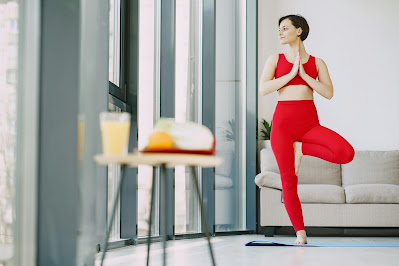

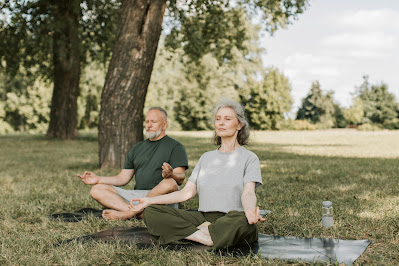



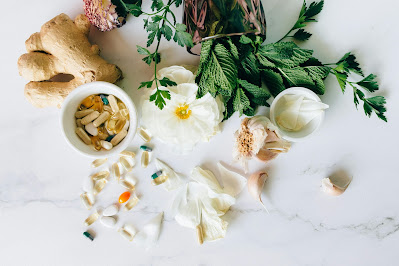



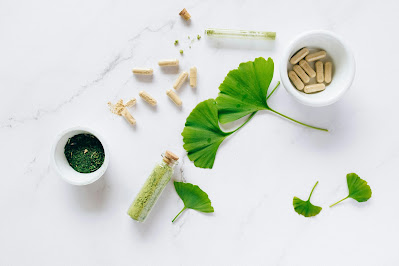




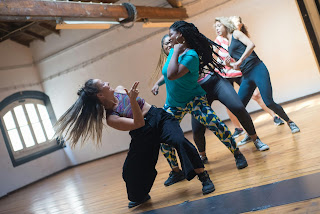



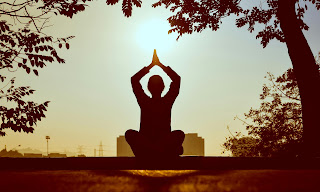



.png)

.png)
